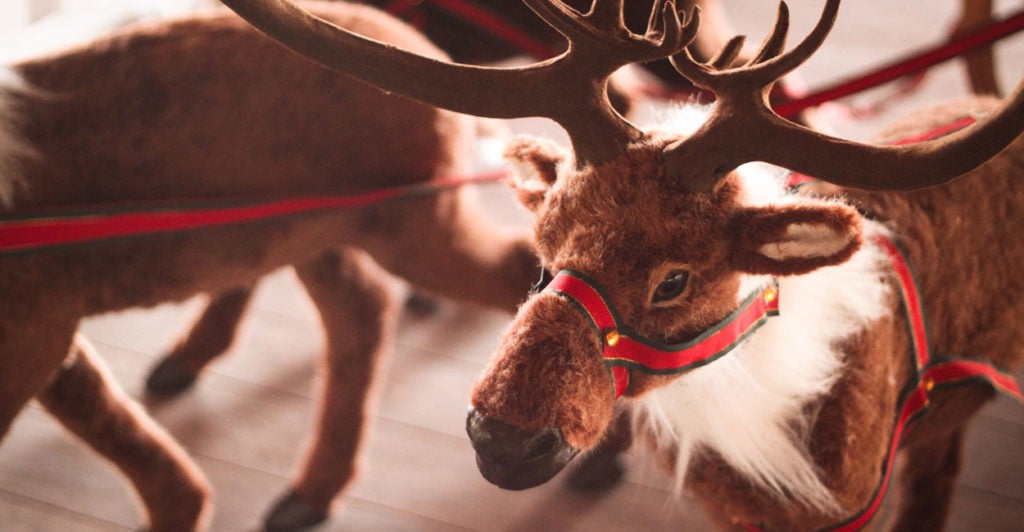On Saturday night, CBS will rebroadcast the annual Christmas special “Rudolph the Red-Nosed Reindeer.”
The seasonal favorite, narrated by Burl Ives, was first telecast in 1964, and has entertained three generations of Americans in the half-century since.
It’s must-see TV for anyone who has ever sung along with Ives’ Sam the Snowman character crooning “Holly, Jolly Christmas.” But in an era of political correctness that has left hardly any corner of pop culture unscathed, not everyone is experiencing the Christmas cheer.
Ever the PC Grinch, the Huffington Post published a withering critique of “Rudolph” that was subsequently picked up and repeated by Yahoo “News.”
HuffPo begins by renaming the stop-motion animation classic “Rudolph the Marginalized Reindeer,” because the title character is teased and bullied by his peers because of his peculiar proboscis.
“Viewers are noticing the tale may not be so jolly after all and [are] sharing their observations online,” it says, reposting a series of tweets critical of the beloved—by most of us, anyway—special.
One Twitter user calls it “a parable of racism and homophobia w/Santa as a bigoted, exploitative pr—.” Another opines that “Santa’s operation is an HR nightmare and in serious need of diversity and inclusion training.”
“Rudolph’s father [Donner] verbally abuses him” and forces the young reindeer to conceal his unique attribute so he can fit in with the other young reindeer, while Santa blames Donner, and Rudolph’s school P.E. coach, Comet, is portrayed as a discriminatory “bully” because he won’t “let Rudolph join in any reindeer games.”
Rudolph has a girlfriend, Clarice, which is probably where the charge of “homophobia” comes in, inasmuch as Rudolph isn’t gay.
And if that’s not bad enough, “Clarice’s dad is a bigot” because he’s not as willing to overlook Rudolph’s nonconforming nose as she is. “No doe of mine is going to be seen with a red-nosed reindeer,” he harrumphs.
Meanwhile, Hermey, one of Santa’s elves, is excoriated by the tyrannical elfin boss of Santa’s workshop because he aspires to be a dentist (not that there’s anything wrong with that), rather than make toys.
As fellow “misfits,” Hermey and Rudolph become fast friends, because, as one of the Twitter posts reprinted by HuffPo notes, “It’s good we don’t fit in. It means we’re not a–h—s.”
Even the fable’s happy ending, where Rudolph’s unusual attribute saves the day, is cast by HuffPo in the worst possible—dare we say, Marxist—light. “In the end, Rudolph and friends learn the bitter truth,” it says. “Deviation from the norm will be punished unless it’s exploitable.”
HuffPo might have unwittingly given Dr. Seuss’ heirs the sequel to “How the Grinch Stole Christmas,” but it somehow missed one decidedly un-PC thread in the storyline: It failed to criticize Mrs. Claus, who early on in the film prods Santa to eat to fatten him up before Christmas Eve.
Doesn’t that qualify as “body-shaming”?
More tellingly, HuffPo’s narrative conveniently fails to acknowledge that, in the end, Donner apologizes to Rudolph for being so hard on him and that the nonconforming “misfit toys” finally find loving homes.
In any case, these PC critics of “Rudolph” need to take a deep breath and get a grip, and if they must, just change the channel. (They got a Christmas fable surely more to their liking Tuesday night, when the cast of NBC’s “Will & Grace” imagined traveling back in time—to 1912—for an episode, “A Gay Olde Christmas,” replete with loads of double-entendre gay sex jokes.)
One can easily imagine that that other perennial Yuletide favorite, “A Charlie Brown Christmas” (which debuted in 1965, a year after “Rudolph”), will be the next target in HuffPo’s and the PC left’s cross-hairs. They’ll likely start by faulting the climactic scene, in which Linus recites “what Christmas is all about,” as too sectarian and exclusionary.
These are the same leftists, by the way, who deny there’s a “war on Christmas.”
“Ho-ho-ho,” indeed.
